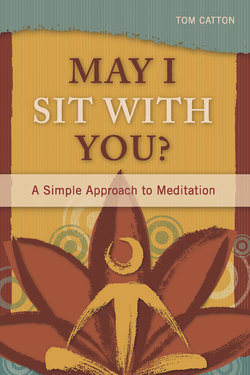Читать книгу May I Sit with You? - Tom Catton - Страница 19
На сайте Литреса книга снята с продажи.
ОглавлениеCHAPTER NINE
SIDE EFFECTS
Television shows are inundated with advertisements promoting some new drug or other to combat illness of the body or mind. Commercials show people waltzing through green fields, basking in sunlight, smiling, and enjoying their new lease on life because of yet another magic pill. These ads are followed by the warning of menacing side effects, such as diarrhea, sleepiness, sexual dysfunction, restlessness, and depression that may even cause suicidal thoughts—oh, and be sure not to drive heavy equipment.
The viewer must consider if the harmful side effects outweigh any potential benefits. And, of course, there is the ever-present fine print at the bottom of the screen that is too small and too lengthy to read, and appears for too few seconds to comprehend. Yes, at certain times and in certain circumstances, some people need to take medication. But I wonder how many aches and pains and even illnesses could be eliminated or reduced if simple meditation were prescribed rather than an arsenal of medications.
I don’t recommend that you stop taking any medications without first consulting with your doctor or medical provider.
I do recommend that you let your doctor know that you meditate or are considering it, and explain the benefits of doing so. Practitioners of Western medicine do good work; science has given them many tools to treat the sick or injured. Maybe your medical provider will share your insights about meditation with others. Another opportunity for you to serve others.
Since the late sixties and early seventies, meditation’s ability to help with stress reduction has been explored. The scientific community’s research has proven that this simple, daily practice can improve one’s overall health and quality of living. Meditation had its coming-out party on the world stage in the 1960s with the book Autobiography of a Yogi. This book and The Beatles’ visit to Maharishi’s ashram in India gave Transcendental Meditation (TM) its wider exposure and its vehicle to spread through the United States.
One of the first studies on the physiology of meditation was the dissertation of UCLA graduate student Robert Keith Wallace. In 1970, part of this study was published in a science magazine. Since then Dr. Wallace has contributed to the increasing body of research into the physical benefits of meditation and consciousness.
Jon Kabat-Zinn, also a pioneer in the study of the benefits of meditation, has helped spearhead a movement that utilizes mindfulness meditation for stress reduction. His methods go back to the late 1970s after he attended a meditation retreat led by Thich Nhat Hahn and began to realize the benefits of meditation for both mental and physical health. Today many HMOs offer meditation groups for patients to learn how to relax into a healthier body.
In 2006, researchers at Harvard, Yale, and MIT released a study on the effects of Vipassana, or mindfulness meditation, on the human brain. They discovered that experienced meditators actually had improved brain function, improved attention, and improved ability to process thought.
Like the medications advertised on television, the practice of meditation may also cause side effects. Some of these may include the following: recognizing love in everything; feeling deep compassion for all sentient beings; experiencing spontaneous joy; being at peace in the moment; wanting only to serve others; listening to the guidance of a still-small voice within; seeing light with eyes closed; having an urge to dance when no one else can hear the music; knowing great peace while moving through a difficult challenge; and generally acting as a fool while playing your part in the cosmic show. These “side effects” sound a lot less harmful than the pharmaceutical side effects we are familiar with from the television ads!
As I said previously, do not stop any medications without checking with your doctor first. But don’t the side effects of meditation sound wonderful?
The practice of Step Eleven is fundamental for the awakening of our spirit, but the ancient practice of meditation is finding its way into the medical and therapeutic communities. And, as mentioned above, research continues to document the physical and mental health benefits of meditation and can be found in numerous scientific journals. Visiting your meditation cushion more frequently could result in improved health and well-being. Excuse me, may I sit with you?
